
When politics run into eye rolls: A battle between censorship and virality
When encountering an unusual moment in a political situation, do we choose censorship or let it happen, finally becoming a meme and going viral?
On March 3rd 2018, China's top political advisory body started its NPC (National People's Congress) and CPPCC (Chinese People's Political Consultative Conference) annual session in Beijing. Three thousand delegates arrived from all over China and would spend the next two weeks discussing policy and direction for the nation in 2018, during which the rule of law and the will of the people should be adhered to by both delegates and reporters.
At the end of each meeting, there were question and answer sessions during a press conference. Questions raised should be comprehensive, practical and representative to the people. Every year, there are particular questions of some delegates or journalists that go viral for certain reasons. And this year, it was an eye rolls drama.
What happened?
In the question and answer session on March 13th, Zhang Huijun, who is a reporter from American Multimedia TV, and can be seen wearing red in pictures of the incident, asked the chairman of the state-owned Assets Supervision and Administration Commission how Beijing would keep an eye on overseas investment under the Belt-and-Road infrastructure program. At the time, a reporter of the financial news site Yicai, Liang Xiangyi, who was in blue clothing and sat next to Zhang, held her chin with her left hand and rolled her eyes once. Soon afterwards, Liang turned to the “red” questioner, looking her up and down, and turned back with disgust and rolled her eyes again.
Captured by China’s national news broadcaster, CCTV, the moment spread quickly across Chinese social media and people rapidly separated themselves into two teams, based on the color of the reporters’ clothing: Ms. Liang’s blue team vs. the questioner Zhang Huijun’s red team. This “politics run into eye rolls” situation can be analyzed from two perspectives: censorship and virality.
Censorship vs. virality
Behaviors and ideas copied from person to person by imitation are defined as memes by Blackmore (2000). On Chinese social media, the spectacular eye rolls sparked both memes and censorship: GIFs and other online riffs inspired by Ms. Liang’s epic eye rolls quickly proliferated and by the evening they were all being deleted by government censors, the Guardian reported.
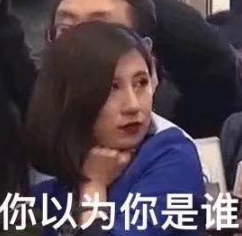
Who do you think you are?
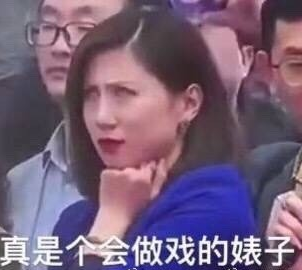
What a drama queen!
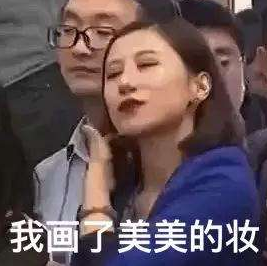
I am wearing beautiful makeup
Pick a team: “red” censorship
In other countries, these eye rolls may be just funny, but not in China. It was an unusual moment which was not allowed to happen in such a solemn occasion like the Congress. Therefore, by late Tuesday afternoon, the video was deleted, and Liang's name became one of the most censored terms on Weibo (China's equivalent of Twitter). Moreover, any posts on social media platforms using her name in Chinese would be censored.
Censorship may be a positive measure to people in the red team, who stood for Ms. Zhang, because they believed that the eye rolling reaction was not professional in such a formal context, and it also reflected being impolite, mean and disrespectful to other people. Hence, the scene should be controlled instead of spreading it on the Internet.
Pick a team: “blue” virality
On the contrary, censorship was considered a disgusting action by people in the blue team who were in favor of Liang. Although Liang’s name became a censored term on Weibo, the number of her Weibo followers increased from thousands to about one hundred thousand within hours after the live broadcast. Eye rolls immediately took social media by storm sparking memes. Numerous clips, GIFs and recreations of the eye rolls moment began to spread across the Chinese Internet. Moreover, even app icons did not get away from the eye rolls virus.
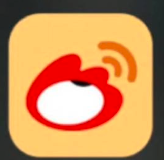
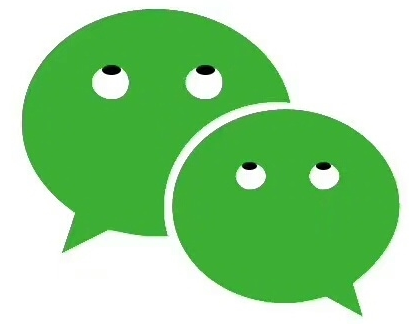
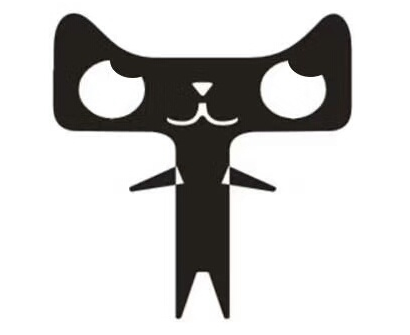
Taobao (Alibaba)
On Taobao, the Chinese online shopping website, vendors began selling T-shirts and cellphone cases bearing eye rolls images. The eye rolls sparked virality, which as a sociolinguistic phenomenon, rose “specific issues about signs, meanings and functions, prompting a shift from “meaning” to ‘effect’” (Varis and Blommaert, 2014: 1). Internet users were expressing their opinions and participated in politics by creating memes and making them go viral. Liang was supported because “the woman in red is just showing off, her question is tedious and meaningless”, and “Ms. Liang’s reaction is natural, she does nothing but express our innermost feelings.”
The censorship can be seen as a representative of the Streisand effect, which is a phenomenon whereby an attempt to hide, remove, or censor a piece of information has the unintended consequence of publicizing the information more widely online. That is to say, censorship in the digital age does not work at all, instead, the censored phenomenon becomes even more widely available than before, as a backlash against the censorship attempt. Even in China, where it takes a different form -becoming a hidden script - the censorship movement is obviously seen as an assault on free speech, and it is usually this aspect that attracts attention and makes it more widespread as a result, rather than the nature of the story itself.
References
Varis, P. & Blommaert, J. (2014). Conviviality and collectives on social media: Virality, memes and new social structures. Tilburg Papers in Culture Studies. 108.
Blackmore, S. (2000). The power of memes. Scientific American, Vol 283, No. 4, p. 52-61.